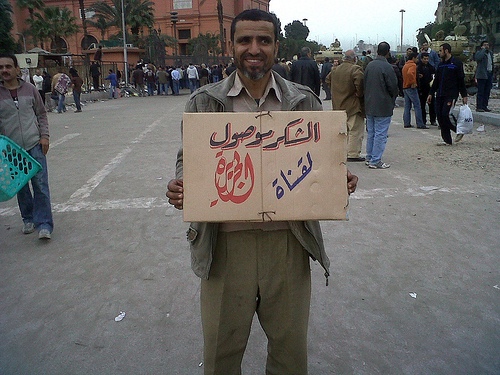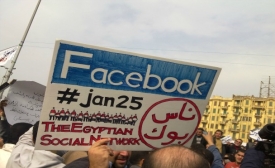international broadcasting
On numerous levels, the United States continues to fall farther behind China in public diplomacy. This is yet another indication that for all its protestations about its commitment to reach out to foreign publics, the U.S. government is unwilling to commit the resources needed to do so effectively.
On numerous levels, the United States continues to fall farther behind China in public diplomacy. This is yet another indication that for all its protestations about its commitment to reach out to foreign publics, the U.S. government is unwilling to commit the resources needed to do so effectively.
WASHINGTON – Use of the Internet and social networks was a significant factor in Egypt during the past month, even when the Egyptian government tried to block online access, according to a survey of Cairo and Alexandria residents released this morning by the U.S. Broadcasting Board of Governors.
From events of the past three weeks a number of lessons can be drawn, some old and some new: First, the phrase "the Arab street" has been redefined by Tahrir Square. We don’t need acute listening agents or polling to see what the Arab world wants.

First, let’s be clear that this was the Egyptian Revolution, not the “Facebook Revolution” or the “Twitter Revolution.” Events of the past few weeks belong wholly to spirit of the Egyptian people, not technology. And although it was built on democratic aspirations, this was not a revolution that drew any inspiration from the United States.
WASHINGTON -- From events of the past three weeks a number of lessons can be drawn, some old and some new:
First, the phrase "the Arab street" has been redefined by Tahrir Square. We don’t need acute listening agents or polling to see what the Arab world wants.
For the past few weeks, a parallel plot line to the revolutions in the Arab world has been playing out in the media. With rare exceptions, the largest American cable and satellite providers simply do not provide viewers access to Al Jazeera English, the cousin to the powerful Qatar-based world news network.

The USC Center on Public Diplomacy and the USC Annenberg Center on Communication Leadership & Policy were pleased to co-host a round-table discussion about the media and Middle East Turmoil. News and social media played a crucial role as revolution sweeps through much of the Arab world.







